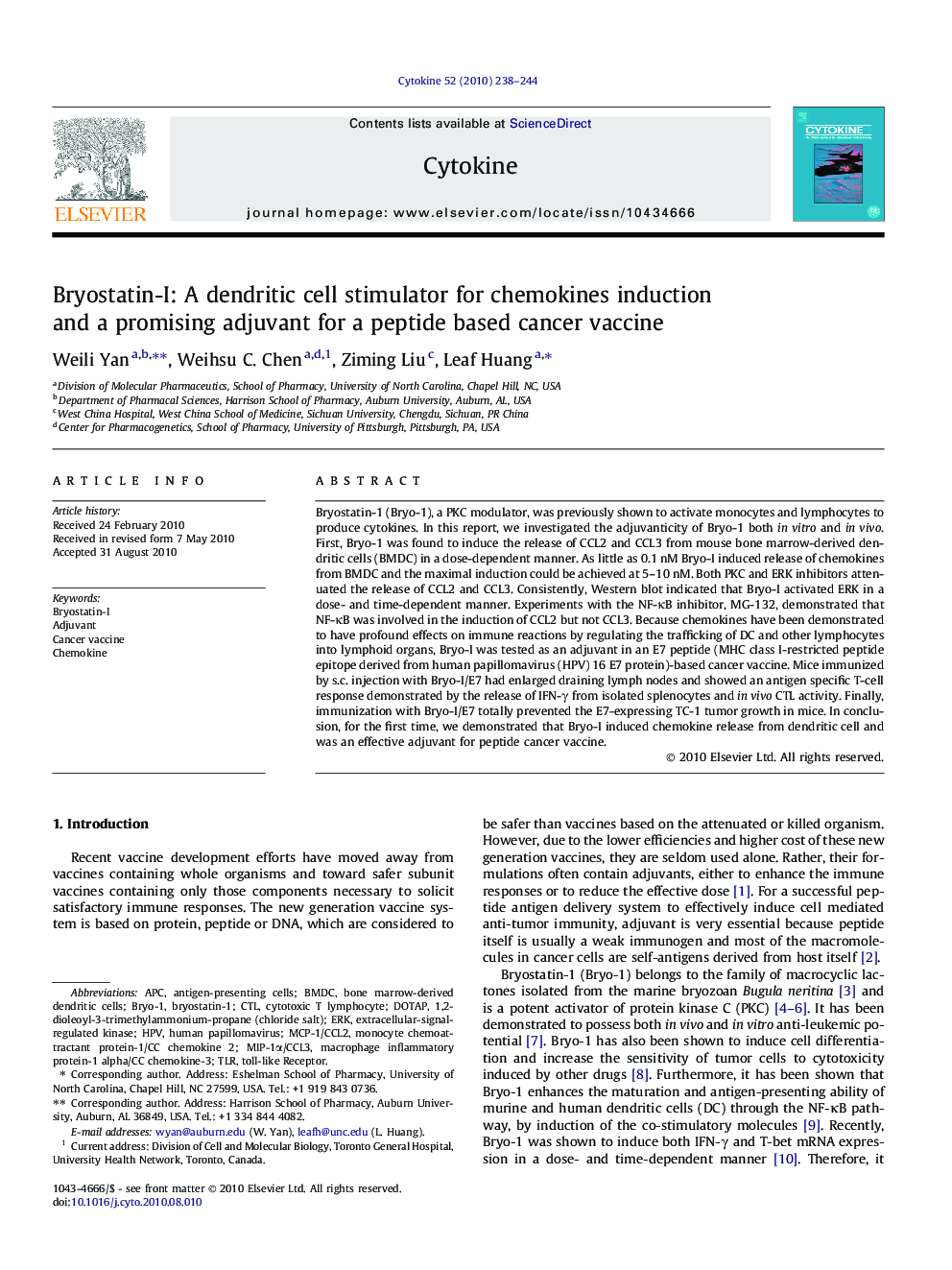| Article ID | Journal | Published Year | Pages | File Type |
|---|---|---|---|---|
| 2794845 | Cytokine | 2010 | 7 Pages |
Bryostatin-1 (Bryo-1), a PKC modulator, was previously shown to activate monocytes and lymphocytes to produce cytokines. In this report, we investigated the adjuvanticity of Bryo-1 both in vitro and in vivo. First, Bryo-1 was found to induce the release of CCL2 and CCL3 from mouse bone marrow-derived dendritic cells (BMDC) in a dose-dependent manner. As little as 0.1 nM Bryo-I induced release of chemokines from BMDC and the maximal induction could be achieved at 5–10 nM. Both PKC and ERK inhibitors attenuated the release of CCL2 and CCL3. Consistently, Western blot indicated that Bryo-I activated ERK in a dose- and time-dependent manner. Experiments with the NF-κB inhibitor, MG-132, demonstrated that NF-κB was involved in the induction of CCL2 but not CCL3. Because chemokines have been demonstrated to have profound effects on immune reactions by regulating the trafficking of DC and other lymphocytes into lymphoid organs, Bryo-I was tested as an adjuvant in an E7 peptide (MHC class I-restricted peptide epitope derived from human papillomavirus (HPV) 16 E7 protein)-based cancer vaccine. Mice immunized by s.c. injection with Bryo-I/E7 had enlarged draining lymph nodes and showed an antigen specific T-cell response demonstrated by the release of IFN-γ from isolated splenocytes and in vivo CTL activity. Finally, immunization with Bryo-I/E7 totally prevented the E7-expressing TC-1 tumor growth in mice. In conclusion, for the first time, we demonstrated that Bryo-I induced chemokine release from dendritic cell and was an effective adjuvant for peptide cancer vaccine.
